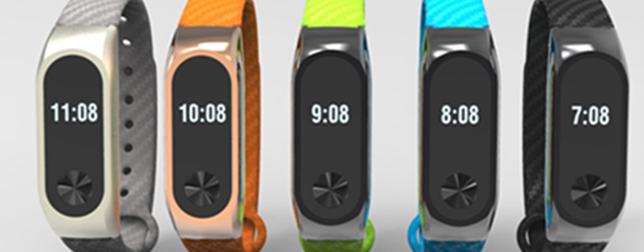The wearable market has experienced a tremendous growth in the first quarter of 2018, and one of the reasons behind this is the strong demand for health-centric devices. And, on top of the competition, Apple and Xiaomi is going neck-and –neck.
While both companies are vying for the top market share, the wearable bands sold by both of them do not contest. While Apple Watch is a full-function smartwatch with LTE connectivity in its latest models, Mi Band 2 by Xiaomi is a cheap fitness tracker with a price tag of only $20. The Mi Band 2 has an OLED screen that displays time, tracks heart rate and counts your step. Xiaomi is planning to release Mi Band 3 at the end of this month.
Apple shipped 3.8 million Apple Watches in the first quarter of 2018, according to researcher Canalys. That beats Xiaomi’s delivery of 3.7 million Mi Bands in the same period. The wearable band shipment grew by 35%, year on year, in Q1 2018, reports Canalys. This includes both smartwatches and basic fitness bands.
Read more Upcoming Samsung Smartwatch May Be Powered by Google’s Wear OS
While wearable band revenue for smartwatches jumped form 74% to 80%, the shipped units were accounted at 43%.
According to Canalys, 20.5 million wearable bands were shipped in the first quarter of 2018. The top 5 brands contributed to 60% of these shipments. Apple and Xiomi had 18% stake each, with Fitbit closely following at 11%, Garmin at 7% and Huawei at 6%. The remaining 40% is shared by various fitness wearable brands.
“Key to Apple’s success with its latest Apple Watch Series 3 is the number of LTE-enabled watches it has been able to push into the hands of consumers. Operators welcome the additional revenue from device sales and the added subscription revenue for data on the Apple Watch, and the list of operators that sell the LTE Apple Watch worldwide is increasing each month,” says, Canalys Senior Analyst Jason Low.
Read more How Employees are Finding Apple Watch Very Useful at Work
Apple Watch Series 3 Cellular, which was launched in select global markets in September, 2017, has just recently been launched in India. The cellular watch supports electronic SIM that is capable of making calls, text messaging, emailing and other notifications on its own, without having to depend on the Bluetooth or WiFi connectivity.
Fitbit is betting on its new Versa smartwatch, while initiating health tracking for females in a bid to expand the addressable market. In the Q1 2018, Fitbit’s smartwatches, including the Blaze accounted for 24% of the company’s wearable band shipments, according to Canalys.













